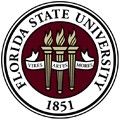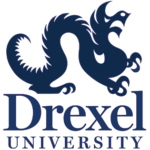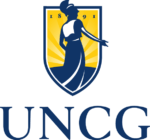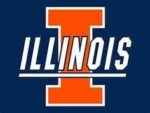
We live in a continuously globalizing digital information environment. Emerging careers in libraries and information agencies are on the rise. Earning a Master’s in Library and Information Science can open the door to exciting career possibilities. The best online library science programs offer a traditional path of librarianship in public, academic, or K-12 school libraries. There are also other exciting and diverse tracks for library science professionals who want to work in different settings such as:
- communities
- corporations
- medical
- law
- nonprofits
Graduates with a master’s in library and information science can use their skill set in a variety of ways including working in:
- social media
- data curation
- data analytics
- content strategy
- e-learning
- organizational development (fundraising)
- user experience (UX)
- competitive intelligence
Employment opportunities in the field are dependent on experience and educational qualifications. Those with a master’s in library and information science can expect to make an above-average salary. According to the Bureau of Labor Statistics, the median pay in 2021 for a librarian and library media specialist was $61,190/year. The job outlook through 2031 appears favorable, with a growth projection of 6%, or as fast as average. Moreover, this exciting field produces a high level of job satisfaction: over 85% of information professionals questioned in a survey said if they had the choice, they’d do it again.
Information management/systems blend information using cutting-edge technology to develop systems for acquiring, organizing, storing, and delivering information. Basically, graduates in the field are concerned with how people receive and understand information so the role of information professionals is also to help connect people with information and technology. Additionally, developing communication and interpersonal skills for determining the information needs of all users is an inherent part of the job.
The best masters of library science programs provide you with a strong understanding of general knowledge of the profession. They also provide the opportunity to explore individual areas of interest as related to career choices. Additionally, graduates will accumulate a solid set of library science skills needed to function in the increasingly technical environment of information storage and retrieval. An MLIS program will prepare you well for working at the center of information-rich environments and cover computing tools, database structures, and retrieval systems and strategies. For your convenience, we have prepared a list of the 15 best online MLIS programs based on affordability, flexibility, and prestige.
Related Resources:
- The 20 Best Schools Offering Online Reading Endorsements
- The 40 Best Books on Early Childhood Education
- The 20 Best Books of Technology in Education
- The Rise of STEM in Schools
Methodology:
- Affordability (1/3): Combined analysis of overall tuition of the program, financial aid or scholarship assistance programs, and estimated cost per credit hour for out-of-state students.
- Flexibility (1/3): The number of flexibility-enhancing elements specific to the degree program including teaching philosophy concentrations, degree specialties, prior learning or life experience crediting options, accelerated or self-paced courses, personalized student advisement/guidance, and competency-based credit options.
- Academic Prestige (1/3): The academic prestige of the parent institution operationally defined through the score of combined rankings and/or reviews of prominent education review entities such as US News & World Report and The Princeton Review.
1.) University of Wisconsin-Madison – Madison, Wisconsin
Online Master of Arts in Library and Information Studies
Average Graduate Student Tuition Rate: $10,728/year in-state and $24,054/year out-of-state

The University of Wisconsin–Madison (UW-M), established in 1848, is a highly-respected public institution that ranks in the top 10 for schools that produce Fortune 500 CEOs. Additionally, the school is considered a “public ivy” and is known for the quality of its research, teaching, and service. The school occupies an urban 936-acre campus, about a mile from the state capitol building in Madison, WI, and this flagship campus includes four national historic landmarks. Notably, Travel+Leisure named the Madison campus as one of the most beautiful college campuses in the country. Accredited by the Higher Learning Commission, The University of Wisconsin–Madison matriculates approximately 31,662 undergraduate students and guarantees a student-faculty ratio of 17:1. Just over 45% of classes cater to fewer than 20 students.
University of Wisconsin–Madison’s Master of Arts in Library and Information Studies (MALIS) is a generalist degree that will prepare students for a variety of information careers within Academic, Public, or Special types of library systems. UW-M’s program includes a highly-regarded career services department that is known for its professional placement rates. The 36-credit-hour program requires 3 core courses, then students are able to create a personalized plan of study and choose from five different concentration areas including:
- Librarianship
- Digital Archives
- Information Technology and User Experience
- Data/Information Management & Analytics
- Organization of Information
UW-M’s MALIS also requires a field-based practicum course that gives students real-world experience opportunities and can be taken where they live. The program promises prestige because of the small class sizes guaranteeing individual attention from world-class faculty and researchers. There are 19 Nobel Prize award winners among faculty and alumni.
The program has been accredited by the American Library Association (ALA) since its inception. Finally, the program offers flexibility due to the many concentration offerings and enhanced certificate options.
- Flexibility-Enhancing Components: Number of concentrations
2.) Florida State University – Tallahassee, Florida
Master of Science in Information
Average Graduate Student Tuition Rate: $9.684/year in-state and $24,116/year out-of-state

Florida State University (FSU), started in 1851, is a public space-grant and sea-grant research institution. The establishment sits on an urban 476-acre campus in Tallahassee, FL. Accredited by the Southern Association Of Colleges And Schools (SACS), Florida State University registers about 33,593 undergraduate students, and offers a student-faculty ratio of 22:1. Almost 33% of classes cater to less than 20 students.
Florida State University’s Master of Science in Information Studies (MSI) is a 36-credit-hour program offered through the School of Information. Students can complete their online degree in about two years or six semesters by taking two courses per semester. The basic 36-credit-hour curriculum option requires four core courses and one technology skills requirement course. The remaining credit hours can be filled with electives including:
- Cyber Defense Ops and Response
- Information Behavior
- International and Comparative Information Service
- Information, Technology, and Older Adults
The program provides prestige because the FSU School of Information is accredited through the ALA. Moreover, the program is relatively affordable and offers a reduced tuition option for out-of-state students. Additionally, the program promises flexibility because of the wide selection of electives.
- Flexibility-Enhancing Components: Extensive elective course offerings
3.) University at Buffalo – Buffalo, New York
Master’s Program in Information and Library Science
Average Graduate Student Tuition Rate: $11,310/year in-state and $23,100/year out-of-state

University at Buffalo (UB), established in 1846, is a premier, research-intensive public university. It is the largest public university in New York State and one of the top “green” colleges in the country. Their emphasis is on:
- service
- experiential learning
- leadership
The establishment occupies a suburban, historic, and state-of-the-art 1,350-acre campus in Buffalo, NY with another campus in Amherst, NY. Accredited by the Middle States Commission on Higher Education, University at Buffalo registers approximately 19,951 undergraduate students and guarantees a student-faculty ratio of 13:1. Just over 35% of classes cater to less than 20 students.
University at Buffalo’s MS in Information & Library Science (MILS) is for graduates seeking to work in the information field. Both part-time and full-time options are available allowing flexibility for working professionals. The program can be completed in two years. The 36-credit-hour master’s in library science curriculum requires three core and nine elective courses where core courses include:
- Information Life Cycle
- Information Users and Uses
- Introduction to Research Methods
Elective concentrations include:
- Information Organization
- Information Management
- Law Librarianship with a concurrent JD degree
- Music Librarianship with a concurrent MA in Music
- Public or Academic Libraries
- Information Services
- Information Storage and Retrieval
- Special Libraries (archives, museums, health science, corporate, etc.)
Students must also complete a practicum based on their area of interest. The program promises prestige with full accreditation from the ALA, membership in the prestigious Association of American Universities, and top-ranked and award-winning faculty. Furthermore, the program is relatively affordable and the program promises flexibility due to a number of concentrations.
- Flexibility-Enhancing Components: Number of concentrations
4.) University of Washington – Seattle, Washington
Master of Library and Information Science Program
Average Graduate Student Tuition Rate: $17,004/year in-state and $30,477/year out-of-state

The University of Washington (UW), started in 1861, is a public, research university with a state-of-the-art medical center where diversity, leadership, innovation, and sustainability are integral parts of the institution. The school sits on a 703-acre flagship campus just north of downtown Seattle, WA. UW maintains other campuses in Tacoma and Bothell. Accredited by the Northwest Commission On Colleges And Universities (NWCCU), UW enrolls roughly 36,201 undergraduate students and promises a student-faculty ratio of 21:1. Just over 37% of classes cater to fewer than 20 students.
University of Washington’s Master of Library and Information Science (MLIS) equips students with a broad and robust background in important aspects of the library and information science field. The core curriculum emphasizes a theoretical foundation in:
- systems design
- information literacy
- information architecture
- usability
Master’s degree students have the flexibility to elect independent study, directed fieldwork, and/or research projects. The 63-quarter-hour program requires eight core courses and then electives offer the flexibility to select among:
- advanced LIS courses
- iSchool graduate courses
- directed fieldwork
- independent study
- relevant upper-level coursework in other academic disciplines
Also required is a final project or capstone. The program promises prestige as it is one of the most extensive ALA-accredited graduate degree programs in the nation, with world-class faculty and renowned lecturers. Moreover, the program is very affordable. Finally, the program offers flexibility because it allows students to design their program of study to align with their interests and career goals.
- Flexibility-Enhancing Components: N/A
5.) Drexel University Online – Philadelphia, Pennsylvania
Online Master’s in Library and Information Science
Average Graduate Student Tuition Rate: $36,234/year

Drexel University, founded in 1891, is a private research institution with an interdisciplinary and global perspective on education that operates three campuses in Philadelphia. Drexel focuses on experiential learning and operates one of the country’s oldest, largest, and most renowned cooperative education programs. Students can network with more than 1,600 employers worldwide–including industry leaders like Amazon, Google, etc.–and may earn up to 18 months of paid, full-time work experience in their chosen field. The school sits on a lively, urban 96-acre campus in Philadelphia, PA–just minutes from the downtown Center City district. It is conveniently located between New York City and Washington, D.C. Fully accredited by the Middle States Commission On Higher Education, Drexel currently registers approximately 14,413 undergraduate students. Just under 60% of classes cater to less than 20 students.
Drexel University’s MS in Library and Information Science (MSLIS) is a fully-online, award-winning program that is recognized as an industry leader in digital information management. Designed for working professionals, the curriculum emphasizes career skills in all aspects of information management. Graduates will acquire a strong technological background in order to be leaders. They have the skills needed to manage information in various communities from academic institutions, local neighborhoods, and workplaces to schools and more.
The MSLIS is organized into four 10-week quarters per year and requires 45 credit hours–ten foundation and core courses, including a capstone, and five elective courses that are linked to your professional interests including:
- Academic Library Service
- Information Policy and Ethics
- Electronic Records Management
The program offers prestige because Drexel’s College of Computing and Informatics is one of the top MLIS programs in the country. Moreover, Drexel’s MSLIS is fully accredited by the ALA and employs recognized faculty. Furthermore, the program is relatively affordable and provides flexibility thanks to a number of elective course offerings.
- Flexibility-Enhancing Components: Number of electives
6.) The University of Alabama – Tuscaloosa, Alabama
Master of Library and Information Studies Online
Average Graduate Student Tuition Rate: $11,100/year in-state and $31,460/year out-of-state

The University of Alabama (UA), established in 1831, is a public research institution and the flagship university of the Alabama System. The establishment sits on a suburban 1,026-acre campus in Tuscaloosa, AL–about 60 miles from the urban epicenter of Birmingham, AL. Accredited by the Southern Association of Colleges and Schools, UA enrolls about 31,685 undergraduate students and guarantees a student-faculty ratio of 19:1. Over 38% of classes cater to fewer than 20 students.
The University of Alabama’s Master of Library and Information Studies (MLIS) is designed for self-disciplined working professionals Students will prepare for leadership roles in library and information service careers. Courses are delivered synchronously, online students usually meet weekly
The library science program has an approximate completion time of less than two years when taking two courses per semester. The 36-credit-hour program requires three core and nine elective courses where the core curriculum focus is on:
- Information and Media
- Introduction in Communities
- Professional Paths
Areas of emphasis include:
- Academic Libraries
- Digital Stewardship
- Information Literacy
- Public Libraries
- Special Libraries
- Social Justice
- Youth Services
Two concentrations are available including Archival Studies and School Libraries. The program provides prestige with accreditation from the ALA. Furthermore, the program is one of the most affordable masters of library science online on the list. Finally, the program promises flexibility with several areas of emphasis available, a thesis and a non-thesis option, and a generous 9-hour transfer-credit policy.
- Flexibility-Enhancing Components: N/A
7.) University of North Carolina – Greensboro, North Carolina
Master of Library and Information Science
Average Graduate Student Tuition Rate: $5,219/year in-state and $18,937/year out-of-state

The University of North Carolina–Greensboro (UNC-G), founded in 1891, is a public, liberal arts and research university. The school sits on an urban 220-acre campus filled with historic and architecturally diverse buildings in Greensboro, NC–halfway between Washington, D.C., and Atlanta, GA. Accredited by the Southern Association Of Colleges And Schools Commission On Colleges, University of North Carolina–Greensboro matriculates roughly 15,178 undergraduate students and offers a student-faculty ratio of 17:1. Approximately 25% of classes cater to fewer than 20 students.
University of North Carolina–Greensboro’s Master of Library and Information Studies (MLIS) is a challenging and relevant library science program focused on:
- research
- teaching
- service
This MLIS is the oldest accredited LIS program in North Carolina. It is offered fully online using primarily synchronous instruction resulting in an approximate completion time of 2.5 years. The hands-on program will prepare graduates for library and information education in a variety of paths including:
- traditional library, archival, and museum settings
- emerging technologies
- information architecture
- database management
- social media
- web management professions
The 36-credit-hour MLIS includes program options like:
- Master of Library and Information Science (MLIS)
- MLIS with School Library Licensure
- MLIS with Instructional Technology Licensure
Students can also take advantage of licensure-only options in areas like:
- school library
- instructional technology
- school library supervision
Students work with a variety of information organizations that provide meaningful practicums and other volunteer opportunities.
This library science degree program provides prestige thanks to accreditation from the ALA. Additionally, the program is highly affordable. Finally, the program provides flexibility due to multiple options for program specialization, certification, and licensure.
- Flexibility-Enhancing Components: Synchronous courses and a variety of program options
8.) Pennsylvania Western University – Clarion, Pennsylvania
Master’s in Library Science Online
Average Graduate Student Tuition Rate: $9,288/year in-state and $12,630/year out-of-state

PennWest University is the result of a conglomeration of California, Clarion, and Edinboro universities. With over 165 years of tradition and excellence, PennWest provides students access to exceptional courses and faculty. PennWest University is a public, coed institution where students can benefit from outstanding student-centered faculty and a small college experience. Accredited by the Middle States Commission on Higher Education, PennWest University registers over 3,000 undergraduate students and guarantees a student-faculty ratio of 18:1. Just over 22% of classes cater to less than 20 students.
PennWest University Clarion’s Master of Science in Library Science (MSLS) was the first of its kind in the Pennsylvania State System of Higher Education. It provides students with graduate education in a flexible online format. The 36-credit-hour program requires five core courses–including a capstone–six elective courses, and a management course. Further, those who wish to become specialized in a particular area of the field can choose from among different concentrations:
- Local and Archival Studies
- Reference and User Services
- School Library Media
Concentrations provide students with knowledge in:
- general reference sources and services
- instructional design and delivery
Students will also learn about specialized sources and services such as:
- business sources
- government information
- resources in the humanities and social sciences
The program provides prestige because the Department of Information and Library Science is accredited by the ALA. Additionally, the program is highly affordable. Graduates are prepared to work in all types of information agencies and use, analyze, manage, communicate, and adapt to the fast-moving global information environment.
- Flexibility-Enhancing Components: Three available online program tracks
9.) The University of Illinois – Champaign, Illinois
MS in Library and Information Science
Average Graduate Student Tuition Rate: $14,891/year in-state and $29,176/year out-of-state

The University of Illinois–Urbana-Champaign (U of I), established in 1867, is a public research institution. The school sits on a rustic and lush, 1,783-acre campus in the twin cities of Urbana and Champaign, IL. Accredited by the Higher Learning Commission, The University of Illinois–Urbana-Champaign enrolls approximately 34,779 undergraduate students and offers a student-faculty ratio of 21:1. Over 40% of classes cater to fewer than 20 students.
The University of Illinois Urbana-Champaign’s MS in Library and Information Science (MSLIS) is arguably one of the most prestigious online library science programs on our list. Graduates will acquire the skillsets they need to be efficient at managing large volumes of data and analyzing information. They’ll learn these skills in the context of different types of library settings as well as in:
- healthcare
- business
- science-based industries
The 40-credit-hour curriculum is highly customizable as it requires only two core courses. Students select the rest of their courses based on their interests or professional goals. Examples of professional pathways include:
- Data and Asset Management
- Information Organization and Management
- Research and Information Services
- Youth and K-12
- Archival and Special Collections
- Knowledge Management and Competitive Intelligence
The program guarantees prestige due to a world-renowned faculty including Nobel Prize, Pulitzer Prize, Guggenheim Fellowship, Tony Award, and MacArthur “genius” award winners. Finally, the program offers affordability and competitive financial aid packages in the form of:
- assistantships
- scholarships
- fellowships
- merit- and need-based tuition waivers
Students work closely with their advisor throughout the program to stay on track.
- Flexibility-Enhancing Components: N/A
10.) University of South Carolina – Columbia, South Carolina
Online Master of Library and Information Science
Average Graduate Student Tuition Rate: $13,374/year in-state and $29,760/year out-of-state

The University of South Carolina (USC), founded in 1801, is a public, coed research institution. The establishment can be found on a 444-acre flagship campus–listed on the National Register of Historic Places–in downtown Columbia, SC. There are seven satellite campuses across the surrounding area. Also accredited by the Southern Association Of Schools Commissions On Colleges, the University of South Carolina registers roughly 26,864 undergraduate students and guarantees a student-faculty ratio of 18:1. Just over 34% of classes cater to fewer than 20 students.
University of South Carolina’s online Master of Library and Information Science (MLIS) prepares students to work in leadership and management positions in various library settings such as:
- universities
- schools
- communities
- industries
- businesses
The 36-credit-hour program requires 18 credit hours of core courses and 18 credit hours of electives. Elective course offerings include:
- Storytelling
- Children’s Literature
- Diversity in Libraries
- Digital Archives
- Planning Library Facilities
Students also have the flexibility to take classes in other USC departments and from other institutions upon department approval. Students complete an end-of-program portfolio to show mastery in the competency areas of:
- Information and its organization
- Provision of information services
- Leadership and management
- Research
- Technology
- Professional development and lifelong learning
The program promises prestige with a faculty involved in the highest level of teaching, research, and service. Additionally, the program is relatively affordable. Finally, the program offers flexibility due to a 6 transfer-credit policy and an accelerated option.
- Flexibility-Enhancing Components: Can be accelerated
11.) Louisiana State University – Baton Rouge, Louisiana
Online Master of Library and Information Science
Average Graduate Student Tuition Rate: $9,132/year in-state and $9,132/year out-of-state

The Louisiana State University began as a small military school in 1860. They now have over 35,000 students and are one of eight universities in the US with a law school, dental school, medical school, veterinary school, and an MBA program. LSU sits on 650 acres and features more than 260 buildings on the main campus. Louisiana State University is accredited by the Southern Association of Colleges and Schools, Commission on Colleges. They register just under 30,000 undergraduate students and have a student-to-faculty ratio of 22:1.
One of the most flexible online programs in library and information science is offered by Louisiana State University. This 36-credit-hour program can be completed entirely online. Courses are taught by faculty or adjuncts who have a Ph.D. The curriculum covers areas like:
- management of information organizations
- information behavior
- information technology expertise
There is no thesis required. Students can boost their credentials by earning an online certificate in either Archival Studies or Records and Information Management.
- Flexibility-Enhancing Components: No thesis requirement, plenty of elective course offerings
12.) University of North Texas – Denton, Texas
Online Library Science Master of Science
Average Graduate Student Tuition Rate: $6,350/year in-state and $13,694/year out-of-state

The University of North Texas was founded in 1890 and has grown into a Tier One public research university with over 44,000 students. UNT is one of the country’s largest universities, offering almost 250 degree programs. UNT is accredited by the Southern Association of Colleges and Schools Commission on Colleges.
UNT offers an online library science master’s degree through the College of Information. Students complete 12 courses to earn their degree. Six specialized areas allow students to customize their degree. These areas include:
- Archival Studies
- Information Organization
- Knowledge Management
- Law Librarianship and Legal Informatics
- Music Librarianship
- Youth Librarianship
Students can also complete a general program of study. Graduates have been successful working in a variety of careers including resource librarian and law/legal librarian.
- Flexibility-Enhancing Components: Specialization options
13.) University of Arizona – Tuscon, Arizona
Online Library and Information Science Master of Arts
Average Graduate Student Tuition Rate: $12,348/year in-state and $32,290/year out-of-state

The University of Arizona is Arizona’s first public university. They serve over 48,000 students and offer more than 300 majors. Students can take advantage of over 600 student clubs and organizations. Nine out of 10 students receive financial aid. The University of Arizona is accredited by the WASC Senior College and University Commission.
The University of Arizona offers a 37-credit-hour online master’s in library science. The program is accredited by the American Library Association. Students can align their course of study with their career interests by choosing from options like:
- archival studies
- academic or public librarianship
- digital information management and curation
- legal information, law librarianship & scholarly communication
- medical and community health information
Students build core skills in areas like information management and archiving. Graduates have achieved successful careers in fields like:
- Law Librarianship
- Political Organizations
- Academic Librarianship
Most online students can complete their degree in about two years.
- Flexibility-Enhancing Components: Concentration options
14.) Indiana University-Purdue University-Indianapolis – Indianapolis, Indiana
Online Master of Library and Information Science
Average Graduate Student Tuition Rate: $9,366/year in-state and $25,872/year out-of-state

Indiana University-Purdue University-Indianapolis is a four-year, public university with over 27,000 students. IUPUI employs over 8,440 full-time faculty and staff and offers more than 450 academic programs. They hold regional accreditation through the Higher Learning Commission.
IUPUI offers an online Master of Library and Information Science accredited by the ALA. Students can complete their degree entirely online with no on-campus residency requirements. Specializations are available in areas like:
- Academic Librarianship
- Archives Management
- School Library
- Youth Services
- Technical Services
- Public Librarianship/Adult Services
- Facilitated Learning
- Digital Curation
Online students work alongside faculty on real-world projects to gain professional work experience. The online collaborative learning environment helps students connect with peers and instructors from almost anywhere.
- Flexibility-Enhancing Components: Extensive specialization options
15.) Appalachian State University – Boone, North Carolina
Online Master of Library Science
Average Graduate Student Tuition Rate: $4,839/year in-state and $19,849/year out-of-state

Appalachian State University was founded in 1899. They are a public, four-year university located in Boone, North Carolina. App State has over 20,000 students and a student-to-faculty ratio of 17:1. They are one of 17 campuses in the University of North Carolina System. App State offers more than 150 undergraduate and 80 graduate majors. They have been accredited by the Southern Association of Colleges and Schools, Commission on Colleges since 1942.
App State offers a part-time library science master’s degree with a highly interactive curriculum. The program includes a blend of synchronous and asynchronous coursework. Required course offerings include:
- Critical Issues in Literature and Media
- Building Connections Through Community and Culture
- Organization of Information
Students can choose to complete an internship/practicum or a course in the applications of librarianship standards. Most students can complete their degree in two years.
The program is accredited by the AASL and the CAEP. Graduates are eligible to apply for licensure as a Media Coordinator from the State of North Carolina and earn their Public Librarian Certification from the North Carolina Public Librarian Certification.
- Flexibility-Enhancing Components: Opportunities for licensure and certification
